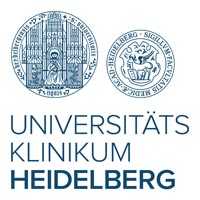Testosterone Activates Autism Risk Genes

Autism is four times more common in boys than girls. Scientists in the Department of Human Molecular Genetics at Heidelberg University Hospital have for the first time found an explanation.
Investigations in human cells and mouse brain tissue showed that activation of certain risk genes by the male sex hormone testosterone is considerably stronger in the brain before and after birth.
These specific gene defects were so far only known to increase the risk of neurodevelopmental disease. This new data indicates that a genetic defect in males may affect brain development more strongly than in females. These results have been published in the journal “Frontiers in Molecular Neuroscience”.
In autistic people, nerve cell development is altered in the brain. One in 68 children is affected (about 1.5%). Symptoms manifest early on and a diagnosis is usually made before the age of three. Typical symptoms include difficulties in social interaction, communication, and perception processing.
Autistic people often show intense special interests and skills, as well as repetitive and narrow restrictive behavioral patterns. However, these traits of autistic behavior vary strongly from patient to patient and are therefore referred to as the autism spectrum.
Although numerous risk factors for the onset of autistic disorders – mainly genetic – have been discovered in recent years, the exact developmental mechanisms of its onset are still poorly understood. Senior author Professor Dr. Gudrun Rappold, Director of the Department of Human Molecular Genetics, says, “Now we have a first indication as to why boys have a much higher autism risk than girls – at least in reference to an important group of the numerous risk genes”.
The tests performed in her research group showed that certain genes, named SHANK1, 2, and 3, are more frequently translated into proteins in the young male brain, influenced by higher amounts of the sex hormone testosterone. The research group in Heidelberg has been investigating SHANK genes for years, as defects in these genes play an important role in the development of autism and other mental illnesses.
More Testosterone – More Shank Protein – Higher Impact on Gene Defects
For the tests, the team used childhood neuronal tumor cells (neuroblastoma) as a model for developing nerve cells. In these cells, the scientists discovered that activation of the SHANK genes depends on the binding of testosterone to a so-called androgen receptor.
If this receptor was blocked, the risk genes were no longer strongly activated. “We confirmed this by examining brain regions of young mice, in which the androgen receptor was absent: these genes were clearly less activated than the ones in control animals with intact receptors”, explains Dr. Simone Berkel, who carried out this study together with Ph.D student Ahmed Eltokhi.
The scientists went on to investigate the amount of Shank protein made in the brains of young male and female mice before and after birth. Male animals, which have a naturally higher level of testosterone in the blood and brain, express significantly higher amounts of Shank proteins than female animals. “We assume that the higher amount of Shank protein in the male brain will enhance the ‘impact’ of defects in the SHANK genes, thus increasing the risk of autism”, concludes Rappold.
Prof. Dr. Gudrun A. Rappold
Abteilung Molekulare Humangenetik
Institut für Humangenetik
Universitätsklinikum Heidelberg
Tel: 06221 /56 50 59
E-Mail: gudrun_rappold@med.uni-heidelberg.de
Berkel S, Eltokhi A, Fröhlich H, Porras-Gonzalez D, Rafiullah R, Sprengel R, Rappold GA: Sex hormones regulate SHANK gene expression. Front Mol Neurosci. 2018 Sep 25;11:337. doi: 10.3389/fnmol.2018.00337. eCollection 2018
Eltokhi A, Rappold G, Sprengel R. Distinct Phenotypes of Shank2 Mouse Models Reflect Neuropsychiatric Spectrum Disorders of Human Patients With SHANK2 Variants. Front Mol Neurosci. 2018 Jul 19;11:240. doi: 10.3389/fnmol.2018.00240. eCollection 2018. Review
Media Contact
All latest news from the category: Health and Medicine
This subject area encompasses research and studies in the field of human medicine.
Among the wide-ranging list of topics covered here are anesthesiology, anatomy, surgery, human genetics, hygiene and environmental medicine, internal medicine, neurology, pharmacology, physiology, urology and dental medicine.
Newest articles

A universal framework for spatial biology
SpatialData is a freely accessible tool to unify and integrate data from different omics technologies accounting for spatial information, which can provide holistic insights into health and disease. Biological processes…

How complex biological processes arise
A $20 million grant from the U.S. National Science Foundation (NSF) will support the establishment and operation of the National Synthesis Center for Emergence in the Molecular and Cellular Sciences (NCEMS) at…

Airborne single-photon lidar system achieves high-resolution 3D imaging
Compact, low-power system opens doors for photon-efficient drone and satellite-based environmental monitoring and mapping. Researchers have developed a compact and lightweight single-photon airborne lidar system that can acquire high-resolution 3D…





















